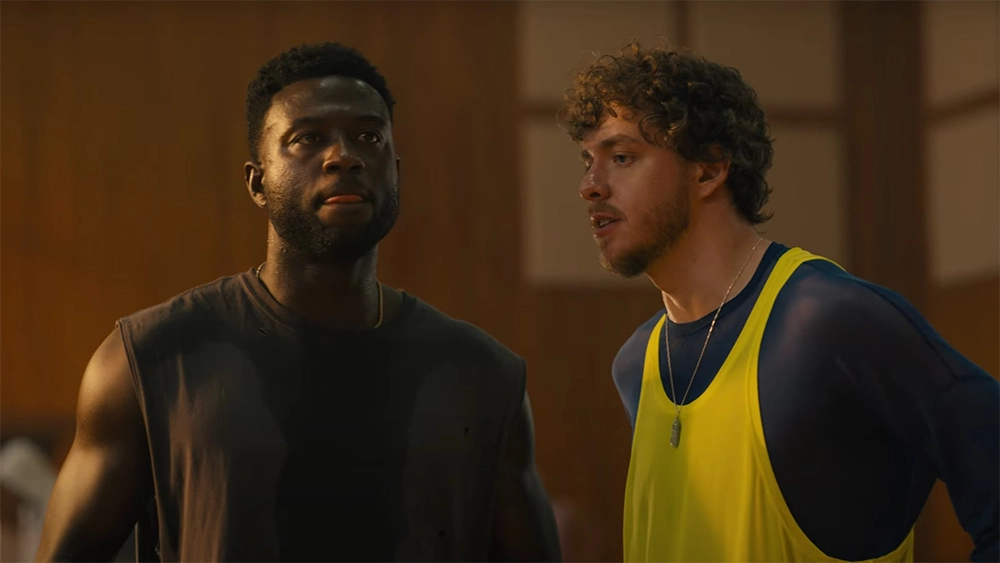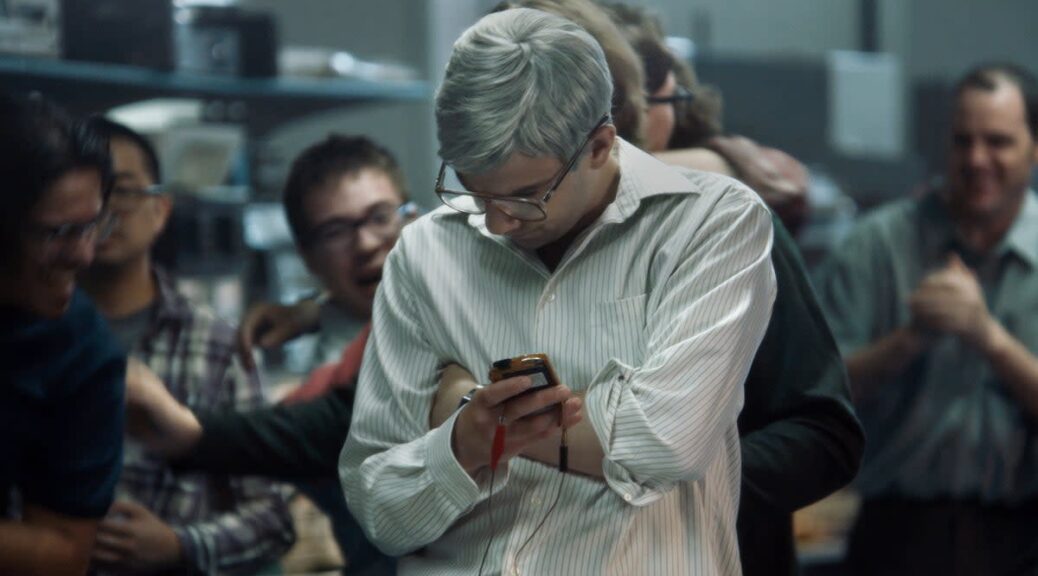Shooting Stars
by George Wolf
It’s a good time for basketball stories. Ben Affleck’s Air landed as a vital addition to the Michael Jordan legend, White Men Can’t Jump got a serviceable update, Boston and Miami just finished a thrilling NBA semi-final while Denver routed LeBron and the Lakers to make it to their first NBA finals.
But King James is still in the game this year, at least on screen. Peacock’s Shooting Stars relives LeBron’s days with the Akron Fab Four on his way to being hailed by Sports Illustrated as “the Chosen One” while he was still a teen.
Based on the book by James and Friday Night Lights author Buzz Bissinger, the film gives a dramatic treatment to much of the territory covered so effectively in the 2008 documentary More Than a Game.
James (Marquis “Mookie” Cook) and longtime friends Dru Joyce (Caleb McLaughlin from Stranger Things), Sian Cotton (Cobra Kai‘s Khalil Everage) and Willie McGee (Avery S. Willis, Jr.) grew up playing basketball together on teams coached by Dru, Sr. (Wood Harris). When it was time for high school, the Fab Four all eschewed local favorite Buchtel High and enrolled at Akron St. Vincent St. Mary, to ensure the diminutive “Lil Dru” would get a fair shot to play.
With no-nonsense coaching from college vet Frank Dambrot (Dermot Mulroney) and the addition of Romeo Travis (Sterling “Scoot” Henderson) to the inner circle, St. V’s Fab Five quickly became a national powerhouse.
Director Chris Robinson keeps things on a nice even keel, pulling solid performances from all with a good balance of off-court camaraderie and hoop excitement (the latter buoyed by future top-5 NBA pick Henderson and the Univ. of Oregon’s Cook – who has LeBron’s high school dunking pose down pat). Writers Juel Taylor (Creed II), Frank E. Flowers and Tony Rettenmaier do an admirable job of distinct characterizations, but with James and his business partner Maverick Carter as executive producers, a sanitized, almost after-school vibe starts to creep in, especially for anyone who enjoyed the home video authenticity of More Than a Game.
We know what became of James, but no matter where you stand on the GOAT debate, Shooting Stars will remind you that how he turned out continues to be taken for granted. In the public eye since adolescence, James is now the NBA’s all-time scoring leader, sends kids to college and speaks out on social justice while enduring the social media scrutiny MJ never imagined. And to this day, his biggest misstep has been an ill-advised television special.
Still, LeBron has been insistent that Shooting Stars “is our story,” which is indeed how the film ultimately feels. And while it’s rooted in one special team from Ohio that earned trophies and built some lifelong friendships, there are also healthy reminders of the universal life lessons that can come from organized sports and committed coaches.
That’s a winning combination.













